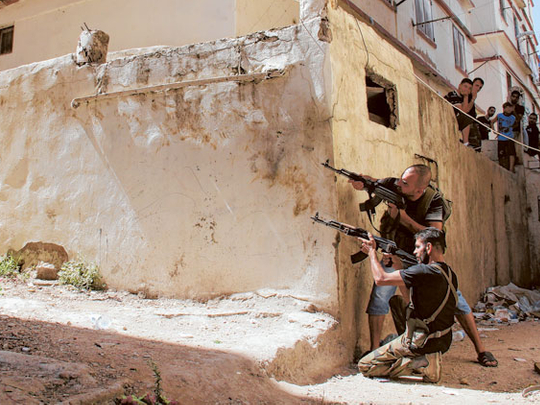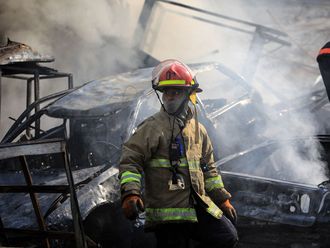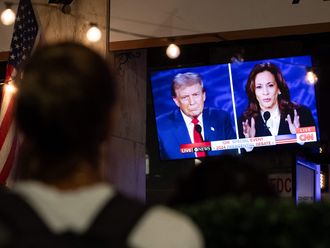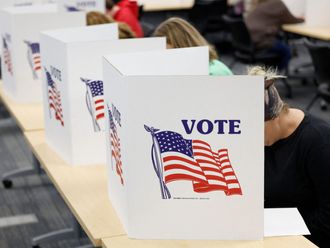
Beirut: Anti-Al Assad politicians in Lebanon are calling for the deployment of United Nations peacekeepers along the country’s volatile northern border with Syria to curb Syrian troop incursions and artillery shelling as some locals pack up their bags.
The calls come amid rising concerns that Lebanon’s northern border, where support for Syria’s rebels runs deep, is being dragged into the worsening conflict next door. But the request for a UN presence is likely to go unheeded, given Lebanese government opposition and international reluctance to risk getting embroiled in the conflict by dispatching foreign troops.
The Lebanese government, the bulk of which is composed of allies of Damascus, says it will take a strong stand against Syrian border violations but rejects the idea of allowing UN peacekeepers into north Lebanon.
“When the Syrian shelling of Lebanese areas occurs, we will not disassociate ourselves but will protest,” Najeeb Mikati, the Lebanese prime minister, told reporters earlier this month. “When there are attempts to destabilise Lebanon from Syria, we will not disassociate ourselves, and we will take necessary measures.”
But he ruled out the deployment of the 11,500-strong UN peacekeeping force known as Unifil in south Lebanon to the north. “Is it the right time?” he asked rhetorically. “Is Unifil ready to deploy along the border?”
Last week, the parliamentary coalition requested the deployment of Unifil troops along the northern border and the expulsion of the Syrian ambassador to Beirut and lodged a complaint with the Arab League at Syria’s repeated border violations.
Unifil has been present in south Lebanon since 1978 but was heavily reinforced in the wake of the 2006 war between Israel and Lebanon’s militant Shiite Hezbollah organisation. The UN Security Council Resolution 1701, which defines Unifil’s post-2006 mission, includes a clause that permits it to help the Lebanese authorities prevent the smuggling of arms into Lebanon. The clause specifically refers to preventing the transfer of weapons from Syrian territory to Hezbollah’s arms caches inside Lebanon.
But as far as pro-government Syrians are concerned, the security problem is on the Lebanese side of the border, where members of the Free Syrian Army (FSA) are hosted by sympathisers who give them a safe haven to regroup, plan operations, treat wounded, smuggle arms into Syria, and mount periodic cross-border attacks against Syrian Army positions.
The scale of FSA activity in north Lebanon is minimal compared to that of Turkey, the main external base of the armed Syrian opposition. But the nightly Syrian artillery bombardments of a string of Sunni-populated border villages in the Akkar province of north Lebanon, as well as cross-border raids elsewhere along the frontier, are attempts to interdict FSA militants crossing the border and to punish their Lebanese supporters.
The Lebanese Army has reinforced its presence in the northern border area, but there is little more it can do. Returning fire at Syrian Army positions is politically out of the question. But chasing and detaining FSA militants in Lebanon will simply incur further anger from Lebanese Sunnis who support the Syrian opposition and already distrust the Army.
Christian Science Monitor












